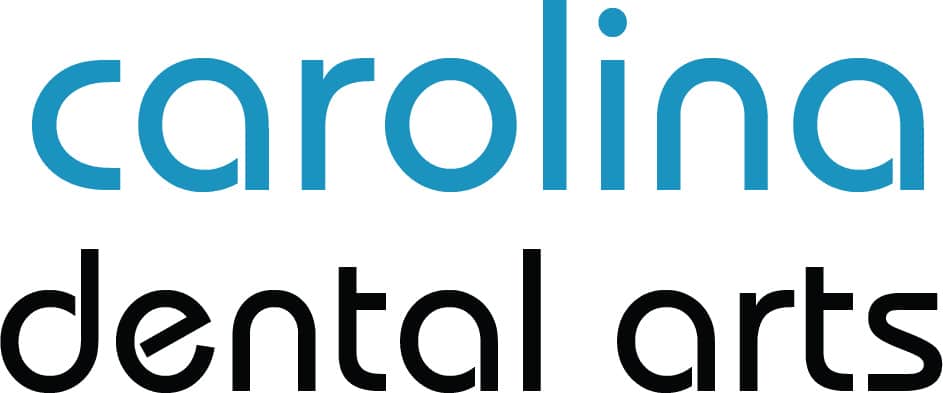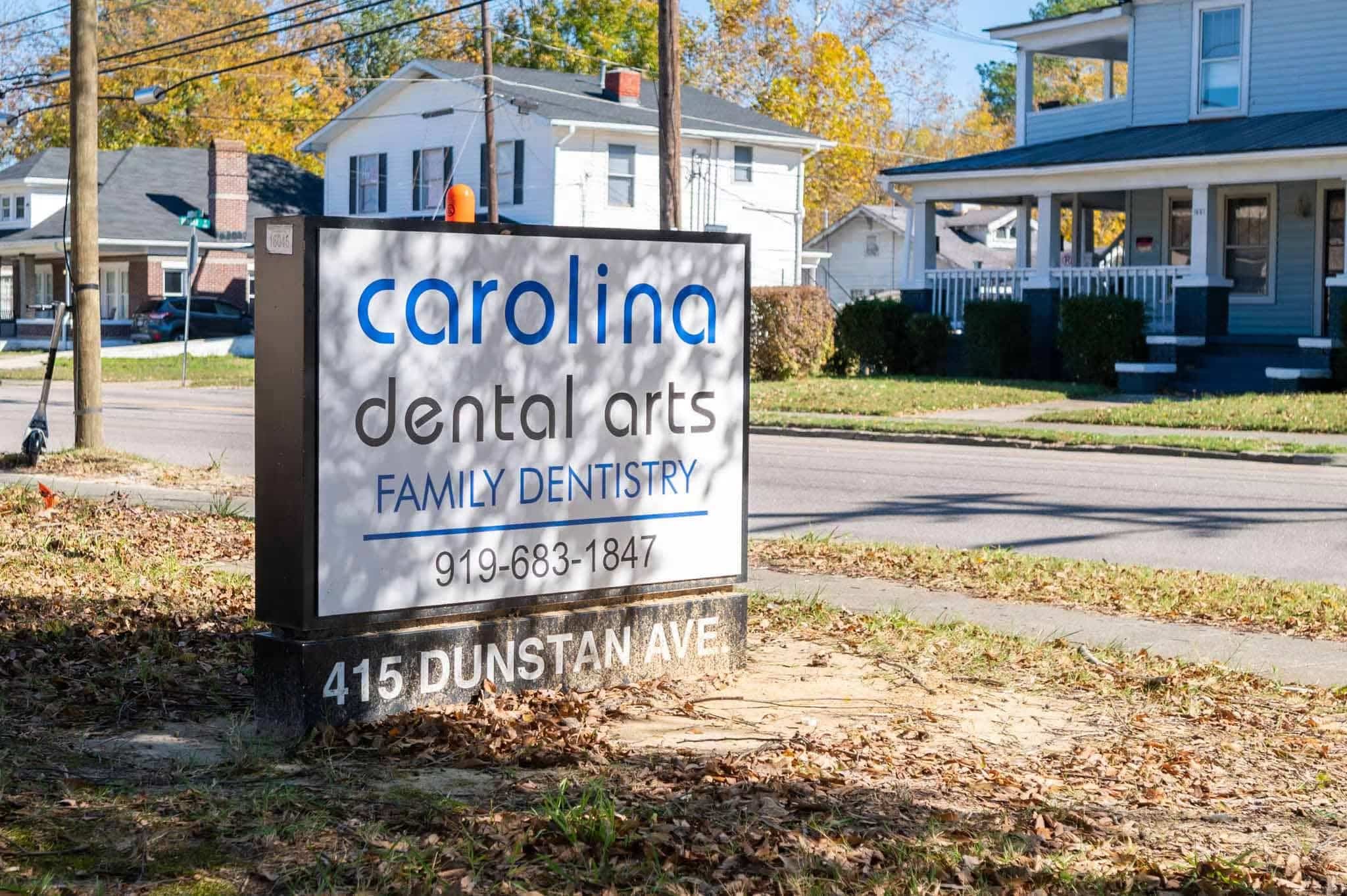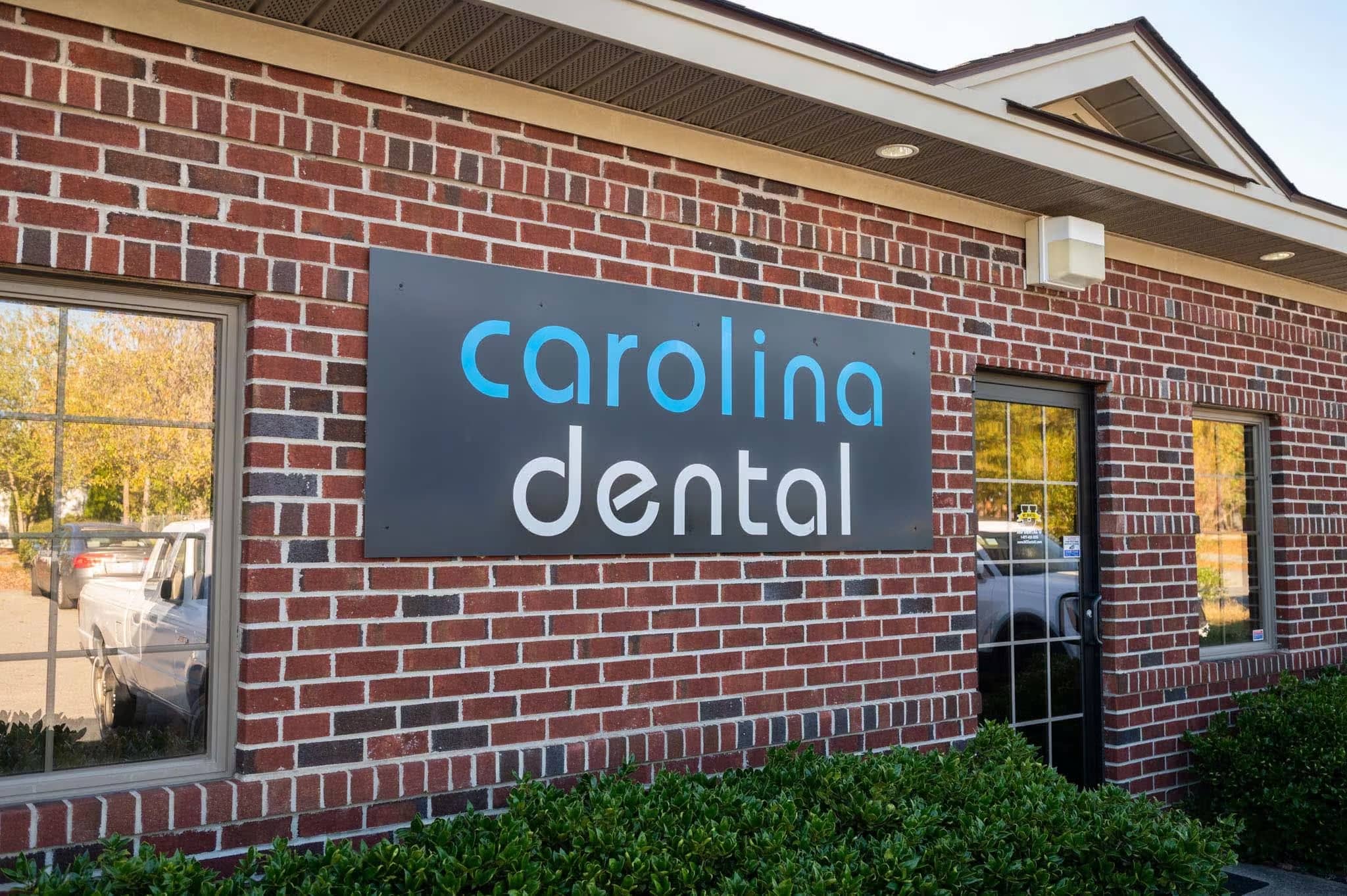Dentures in North Carolina
Providing quality full, partial, and implant dentures in Durham, Raleigh, and Goldsboro.
Missing teeth can make everyday activities like eating, speaking, and smiling more challenging. At Carolina Dental Arts, we understand how distressing this can be, but rest assured, we have a range of effective solutions to restore your dental function and boost your self-confidence. Whether you need complete, partial, or implant-supported dentures, our experienced team is here to help you find the perfect fit for your needs. We invite you to explore our comprehensive denture services designed to bring back your smile and improve your overall oral health.
Understanding the Different Denture Types
Various factors cause tooth loss, including severe decay, advanced gum disease, dental trauma, smoking, and chronic diseases. In some cases, these issues lead to the loss of all teeth in an arch, while in others, only a few teeth are lost.
Given our patients’ diverse needs, we offer many denture options. These include traditional choices like complete and partial dentures and implant-supported solutions for enhanced comfort and functionality.
Complete Dentures
 Complete or full dentures are the type of appliance you think of when you hear the word “dentures.” They are removable prosthetics with artificial teeth on a gum-colored base. We use these when all the teeth in an arch are missing.
Complete or full dentures are the type of appliance you think of when you hear the word “dentures.” They are removable prosthetics with artificial teeth on a gum-colored base. We use these when all the teeth in an arch are missing.
Full dentures are crafted after the teeth have been lost or removed and your gums have healed. If an extraction is necessary, recovery generally takes between four and six weeks.
Alternatively, immediate dentures can be prepared beforehand and worn after the teeth are extracted. This ensures you never have to go without teeth as your mouth heals. Once the tissues recover, we can make adjustments to the denture.
In general, full dentures tend to last between five and 10 years.
Partial Dentures
Partial dentures are also removable dental appliances, but they are designed to replace several missing teeth instead of a complete arch. They use similar materials to full dentures, but the prosthetic connects to remaining natural teeth with metal or acrylic clasps.
This prosthetic enhances oral function, improves bite aesthetics, and prevents remaining teeth from shifting toward the open spaces. The lifespan of partial dentures depends on the materials used and ranges from five to 15 years.
Implant Dentures
 While traditional full dentures rest on the gum ridge or upper palate, relying on suction to stay put, implant dentures connect to the jawbone via dental implants. The implants are titanium posts with one end anchored in the jawbone and the other protruding above the gumline. The denture is fabricated to snap onto the top of the posts.
While traditional full dentures rest on the gum ridge or upper palate, relying on suction to stay put, implant dentures connect to the jawbone via dental implants. The implants are titanium posts with one end anchored in the jawbone and the other protruding above the gumline. The denture is fabricated to snap onto the top of the posts.
This method provides greater stability, prevents the appliance from slipping, and improves chewing efficiency. Implant dentures come in various forms, including removable and fixed options, catering to different patient needs and preferences. This advanced dental solution enhances functionality and helps preserve the jawbone structure, providing a more natural and long-lasting result.
At Carolina Dental Arts, we offer the following implant denture options:
- Snap-in dentures look similar to conventional dentures but connect securely to implants.
- Semi-removable roundhouse bridges are arches of artificial teeth that can be made with or without artificial gums. The high-quality materials enhance the prosthetic’s natural look. At your routine visits, we will remove the appliance to clean both the bridge and your implants, ensuring they remain in excellent condition.
- Non-removable roundhouse bridges never have to be removed! These easy-to-maintain dentures are aesthetically pleasing and exceptionally stable as we permanently cement them to the implants.
The Advantages of Denture Stabilization With Mini Implants
While we can use conventional dental implants to secure dentures, many of our patients prefer mini dental implants for denture stabilization due to their unique benefits:
- Minimally invasive procedure: We use a less invasive method to place mini implants, facilitating quicker and easier placement. This simpler placement generally leads to fewer complications and allows more patients to experience the benefits of implant solutions. Patients who cannot undergo complex surgeries or are anxious about complicated dental treatments are often excellent candidates for mini implant dentures.
- Suitable for patients with less bone density: These narrow-diameter implants—half the size of conventional implants—take up less space in the jawbone. This means we can often use them in patients with insufficient bone density for traditional implants. Their small size also eliminates the need for bone grafting surgery in most cases.
- Quicker healing and reduced discomfort: Due to their smaller size and less invasive placement, the tissues surrounding mini implants typically heal faster than traditional implants. These features also result in much less postoperative discomfort and swelling.
- Treatment efficiency: We can typically place mini implants in just one appointment. In contrast, traditional implants require multiple visits and a longer treatment timeline to accommodate healing. Additionally, mini implants often allow for “immediate loading,” meaning patients can have their dentures stabilized right away, unlike traditional implants, which typically require a waiting period.
The Denture Process at Carolina Dental Arts
Traditional Dentures
Getting dentures at Carolina Dental Arts involves several appointments over a few weeks. During the initial appointments, we take molds and measurements of your mouth to create your dentures. After the appliance is made, you’ll come in for a “try-in” or fitting appointment. At this time, you’ll try on the prosthetic to ensure proper shape, fit, and color. At your final appointment a couple of weeks later, we will place your completed custom dentures.
Mini Implant Dentures
The process for getting mini dental implant-supported dentures begins with an initial consultation where we will evaluate your oral health and bone structure to ensure you are a suitable candidate. Once approved, the next step is the placement of the mini implants. We first administer local anesthesia and then screw each implant through the gums into the jaw. The series of implants serves as the foundation for your dental appliance.
In some cases, we can secure the final dentures immediately. In other instances, we will wait to attach them until the implants have integrated with the bone over a short healing period.
Get Your Bite Back With High-Quality Dentures
At Carolina Dental Arts, we understand the impact that missing teeth can have on your quality of life. That’s why we offer a variety of denture solutions, from complete and partial dentures to advanced implant-supported options. Our skilled team is dedicated to ensuring you receive the best possible denture care. Our goal is to restore your bite, improve your oral health, and bring back your confidence in your smile.
Whether you’re interested in traditional dentures or the enhanced stability of mini implant-supported dentures, we are here to guide you through every step of the process. Contact us today to schedule a free consultation!
Frequently Asked Questions
When adjusting to your new dentures, you might experience increased saliva flow, soreness, and some difficulty chewing or speaking. These issues are temporary and will subside as your muscles and tissues adjust. Our team will provide instructions on proper cleaning and good oral hygiene to ensure your prosthetic lasts for years. While conventional dentures are durable, they will need repairs, adjustments, or replacements over time due to normal wear.
One of the advantages of implant dentures is their enhanced stability, which significantly reduces the adjustment period. With an implant-supported denture, you’ll experience fewer issues with slipping or discomfort, leading to a more natural feel and improved chewing efficiency. As your jawbone integrates with the implants, the dentures will become even more secure, further enhancing comfort and function.
The type of denture you need is a primary cost consideration. Complete dentures typically cost more than partial ones. The materials used also affect the price; prosthetics made from high-quality acrylic or porcelain are more expensive due to their durability and natural appearance.
Costs increase for implant-supported dentures, reflecting their added stability and function. The type of implants used—conventional or mini—impacts the overall price. Traditional implants are usually more expensive because they require a more complex placement procedure and longer healing times. Mini implants, being smaller and less invasive, often cost less and can be placed more quickly. Additionally, the number of implants needed impacts the total cost.
Dental insurance often covers a portion of the treatment costs, but the extent of coverage varies by plan. Most insurance plans will cover basic dentures, while others may partially cover more advanced options like implant-supported dentures. It’s essential to check with your insurance provider to understand your specific coverage details and any out-of-pocket costs you may be responsible for.
With dentures, especially implant-supported ones, you can look forward to a significant improvement in your ability to eat normally. While traditional dentures can sometimes slip and make chewing certain foods difficult, implant dentures provide a stable and secure fit, allowing you to eat with greater ease and confidence. This enhanced stability ensures you can eat all your favorite foods, like steak, apples, and corn on the cob. Eating a greater variety of foods can improve both your diet and overall quality of life. Over time, as you get used to your new teeth, you will find that eating becomes more comfortable and natural.
Related Videos
- What Denture Options Do You Offer?
- What If My Denture Is Loose?
- What Is a Snap-In Denture?
- Will Implant Dentures Affect My Ability To Eat or Speak?
- What Are the Benefits of Implant Dentures?
- Who Is a Candidate for Implant-Supported Dentures?
- What Is the Implant Denture Process?
- Does Getting an Implant Denture Hurt?
- Can You Convert My Denture Into an Implant Denture?
- How Many Implants Are Required To Stabilize a Denture?
- How Long Does the Implant Denture Process Take?
- How Do I Care for My Implant Dentures?
- How Much Do Implant Dentures Cost?
- Are Implant Dentures Covered by Insurance?
- Do You Offer Financing for Implant Dentures?



















